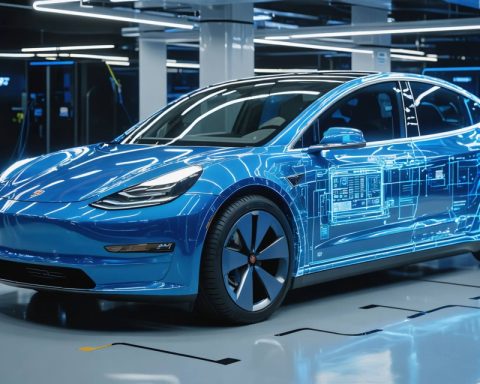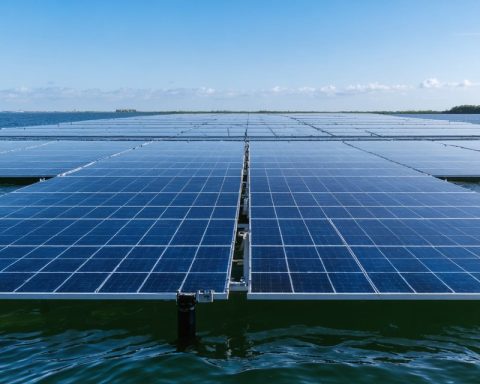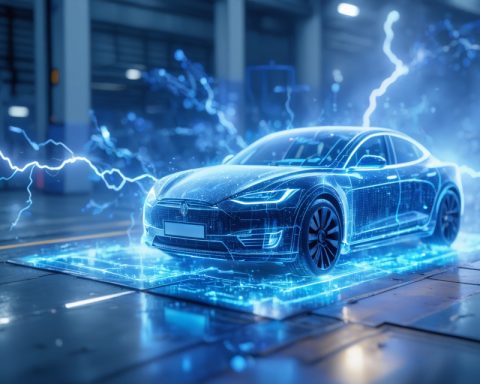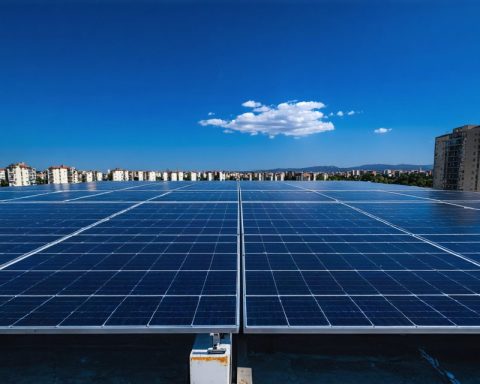- Azerbaijan experiences a growing electric car market, with China supplying 77% of its EVs.
- Chinese manufacturers, led by companies like BYD, have a stronghold in Azerbaijan’s EV market, supported by competitive pricing and government incentives.
- The import of 15,471 hybrid and electric vehicles last year surpassed $396 million, reflecting significant market growth.
- A $60 million investment in electric bus manufacturing by China in Sumgayit Industrial Park will create 600 jobs.
- While offering economic and environmental benefits, Azerbaijan’s reliance on China for EVs creates potential dependency concerns.
- To maintain autonomy, Azerbaijan should diversify its EV market by collaborating with European and South Korean manufacturers.
- Future growth hinges on expanding local production capacities and fostering innovation in high-value components.
- The progression towards sustainable energy in Azerbaijan marks a pivotal shift with complex geopolitical implications.
Amidst the rolling landscapes of Azerbaijan, a surge of electric cars marks a silent revolution. The streets of Baku are abuzz with the low hum of electric motors, dominated by an influx of vehicles from China. Leveraging competitive pricing and strategic government incentives, Chinese manufacturers have harnessed an impressive 77% of Azerbaijan’s burgeoning electric vehicle (EV) market.
Azerbaijan’s streets have become a launchpad for Beijing’s ambitions in the Caucasus, mirroring its meteoric rise in Central Asia. The figures are staggering—last year alone, Azerbaijan witnessed a dramatic hike in its imports with 15,471 hybrid and electric vehicles bringing in over $396 million in value, a sharp edge over the previous year. And China stands at the heart of this growth. Giants like BYD are not only supplying the country but are also laying deep roots by establishing local production for electric buses within Azerbaijan’s borders. This collaboration, a $60 million investment, is set to transform Sumgayit Chemical Industrial Park into a bustling hub of electric bus manufacturing, creating over 600 vital jobs.
This strategic entrenchment positions China as both a pivotal partner and a potential point of contention for Azerbaijan. While electric vehicles shine with promise—offering economic savings, a reduced carbon footprint, and alignment with Azerbaijan’s commitment to renewable energy—they pose questions of market dependency. Currently, it costs significantly less to operate an EV compared to traditional gasoline vehicles, and this advantage could inadvertently grant China leverage over Azerbaijan’s auto industry.
The promise of cleaner air and energy efficiency comes with complex geopolitical threads. Azerbaijan, while benefitting from reduced emissions and market access, must tread carefully. Therein lies a lesson for Baku: embracing diversity within its EV market can safeguard against over-reliance on any single partner. Engaging with European and South Korean manufacturers could balance the scales, fostering a richer, competitive automotive ecosystem.
Looking ahead, Azerbaijan’s challenge is to expand its industrial capabilities beyond assembly to innovation—pushing for technology transfer and local production of high-value components. It’s a dance on the fine line between harnessing growth and conserving autonomy, where strategic diversification can pave the way to a sustainable future.
In a world increasingly driven by sustainable energy, Azerbaijan stands on the cusp of transformation, deftly navigating a path between opportunity and economic sovereignty. The electric pulse of China’s vehicles on Azerbaijani soil is more than just progress; it’s a symbol of potential in the era of green mobility.
The Electric Revolution: How Azerbaijan is Steering Towards a Green Future
Electric Vehicles in Azerbaijan: A Silent Revolution with Chinese Influence
Amidst the scenic landscapes of Azerbaijan, the rise of electric vehicles (EVs), particularly from Chinese manufacturers, is transforming the country’s transportation landscape. With China’s firm grip on 77% of Azerbaijan’s EV market, this shift aligns with Azerbaijan’s commitment to reducing emissions and embracing sustainable energy.
The Influence of Chinese EVs
The influx of Chinese electric vehicles in Azerbaijan is a reflection of strategic pricing and government incentives. Giants like BYD and others have found a fertile ground for growth, turning Azerbaijan into a nucleus of EV production. The partnership includes a $60 million investment in setting up local manufacturing facilities for electric buses at the Sumgayit Chemical Industrial Park, resulting in over 600 new jobs.
Real-World Use Cases and Economic Benefits
1. Cost Efficiency: The operational cost of EVs in Azerbaijan is lower than traditional gasoline vehicles, leading to significant savings for drivers.
2. Environmental Impact: EVs contribute to reduced emissions, improving air quality and supporting Azerbaijan’s environmental goals.
3. Job Creation: Local production facilities boost employment and skill development in the automotive sector.
Geopolitical Implications and Market Dependency
While China’s involvement brings economic benefits, it also highlights the risks of over-dependency. To mitigate this, Azerbaijan could diversify its EV partnerships by engaging with European and South Korean manufacturers to create a more competitive market ecosystem.
A Look Ahead: Innovating Beyond Assembly
Azerbaijan faces the challenge of moving beyond simple assembly to innovation. The country could focus on technology transfer and the local production of high-value EV components, creating a self-reliant and sustainable automotive industry.
Industry Trends and Predictions
– Market Expansion: The global EV market is expected to grow substantially, influenced by technological advancements and environmental policies.
– Technological Transformation: Innovations in battery technology and charging infrastructure are set to enhance EV performance and accessibility.
Pros and Cons of Electric Vehicles
Pros:
– Reduced carbon footprint
– Lower fuel and maintenance costs
– Government incentives
Cons:
– Initial cost of purchase
– Limited charging infrastructure
Security and Sustainability
Implementing cybersecurity measures to protect the EV infrastructure and focusing on sustainable production processes are essential for long-term success.
Actionable Recommendations
1. Government Policy: Enhance incentives for diverse EV manufacturers to prevent market monopoly.
2. Infrastructure Development: Invest in charging stations across urban and rural areas.
3. Public Awareness: Educate consumers on the benefits and operation of EVs.
Conclusion: Navigating a Sustainable Future
Azerbaijan’s journey towards becoming a hub for sustainable energy through EV adoption is promising, yet complex. Strategic partnerships and diversification hold the key to balancing growth with autonomy in the evolving landscape of green mobility.
By embedding these strategies, Azerbaijan can continue to harness the potential of its electric revolution while safeguarding its economic and environmental sovereignty.
For further information about electric vehicles and market trends, visit Tesla or BYD.














